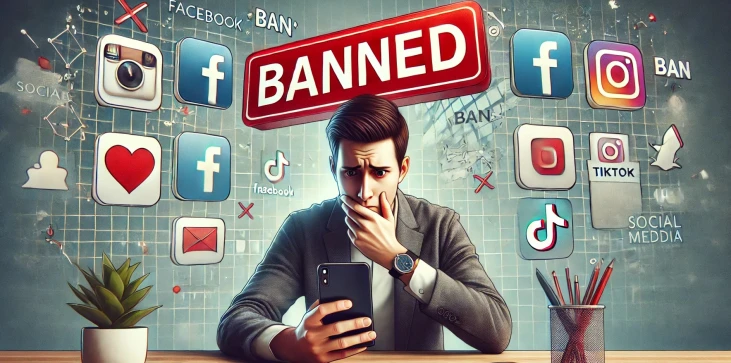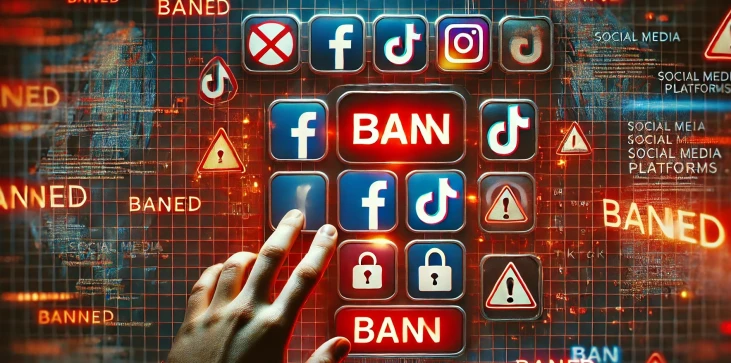
Social media is an essential part of our lives, connecting billions of people around the world. However, maintaining a safe and respectful environment is a priority for these platforms, and they have developed strict rules to enforce this. Whether you are posting content on Facebook, Instagram, or TikTok, it's important to understand the reasons to get banned and how to avoid these mistakes. Violations of community guidelines could not only affect your ability to engage with your audience but also lead to permanent bans. In this article, we’ll explore the most common reasons for getting banned on these platforms and share practical tips for navigating social media safely.
One of the top reasons to get banned from platforms like Instagram, Facebook, or TikTok is sharing inappropriate content. This includes graphic violence, explicit adult content, or promoting self-harm. Each platform has clear policies about what is acceptable. For example, TikTok takes a strong stance against bullying and harassment, while Instagram prohibits explicit images and any form of hate speech. Consistently posting such content can quickly result in account suspension or permanent bans.
Another common reason to get banned is engaging in spammy behavior or using fake accounts. This includes activities like mass-following users in a short amount of time, sending unsolicited direct messages, or repeatedly posting the same content. Platforms like Facebook also actively target fake accounts created solely for deceptive purposes, such as spreading misinformation or manipulating online discussions. Using bots or automation tools can also lead to account suspension.
Sharing content that you don’t own or have permission to use can result in getting banned from platforms like Instagram and Facebook. Copyright violations occur when users share music, videos, or images without proper rights or credits. These platforms have automatic detection systems that flag and remove copyrighted material. Repeated violations can lead to your account being banned, and it is important to always give credit or obtain permission before sharing someone else’s work.
Promoting illegal activities such as drug use, selling firearms, or engaging in fraudulent schemes can lead to immediate account suspension. Social media platforms like TikTok and Facebook work hard to remove content that promotes illegal behavior or products that pose a danger to public health and safety. Accounts that engage in or promote these activities can face serious consequences, including permanent bans. Always ensure that the content you share aligns with the legal and ethical guidelines of your region and the platform’s community rules.
Understanding the most common reasons to get banned on social media platforms is crucial to maintaining a healthy and productive online presence. By following community guidelines, avoiding spammy behavior, respecting copyright, and steering clear of promoting illegal activities, you can protect your account and continue engaging with your audience. Social media is a powerful tool when used responsibly, and adhering to the rules will ensure your account stays active and valuable.

Yes, using automation tools like bots to gain followers or engage with users can violate Instagram’s terms of service. Instagram actively monitors for suspicious activity, and accounts using bots may face temporary suspension or a permanent ban.
Yes, most social media platforms offer an appeals process if you believe you were banned unfairly. You can typically submit an appeal through the platform’s help center, where the team will review your case and potentially reinstate your account.
TikTok, like other social media platforms, takes copyright violations seriously. The platform uses automated detection systems to flag copyrighted music, videos, or images. Repeated infringements can lead to account suspension or permanent bans, just like on Facebook and Instagram.